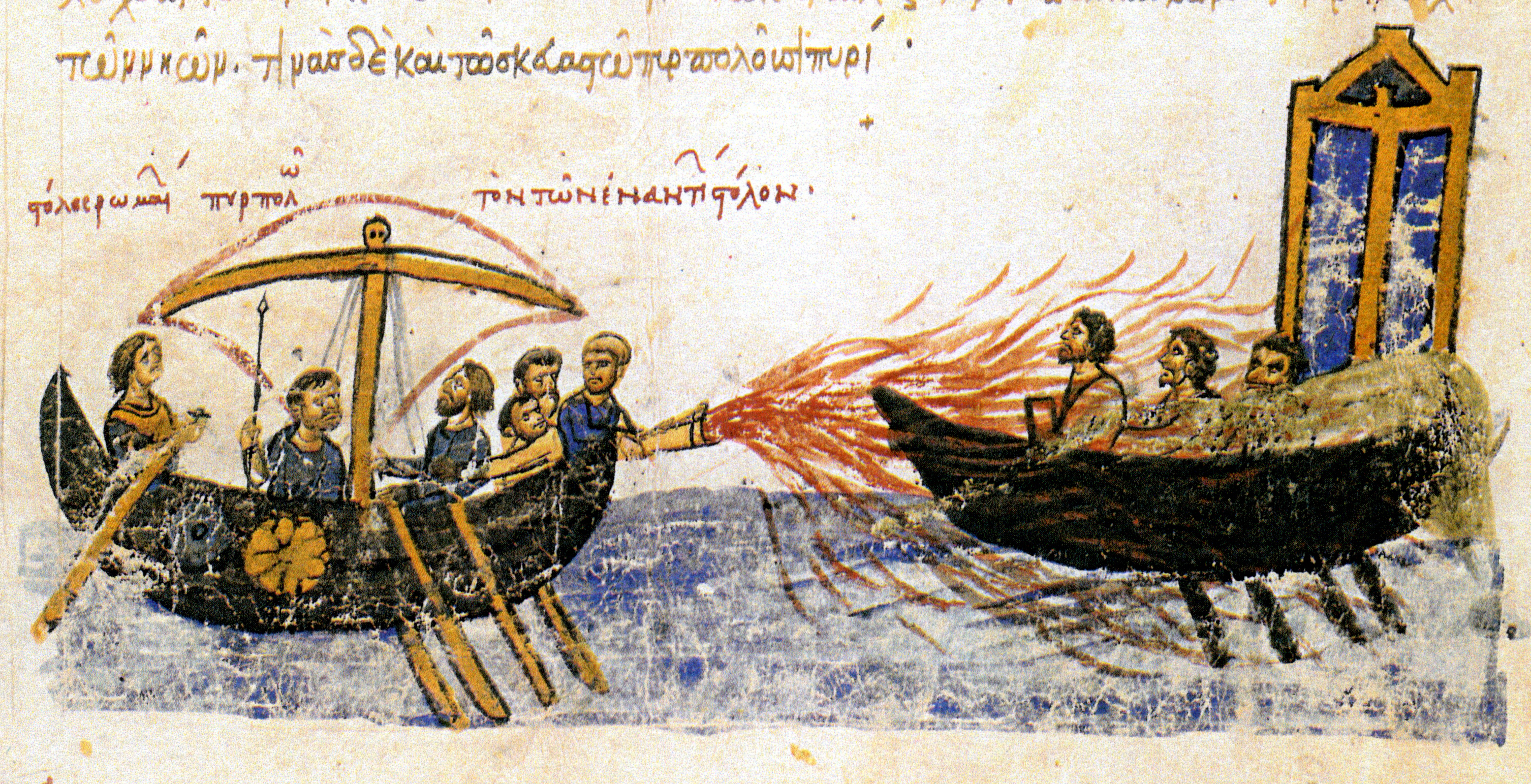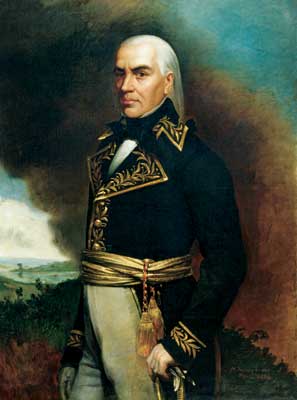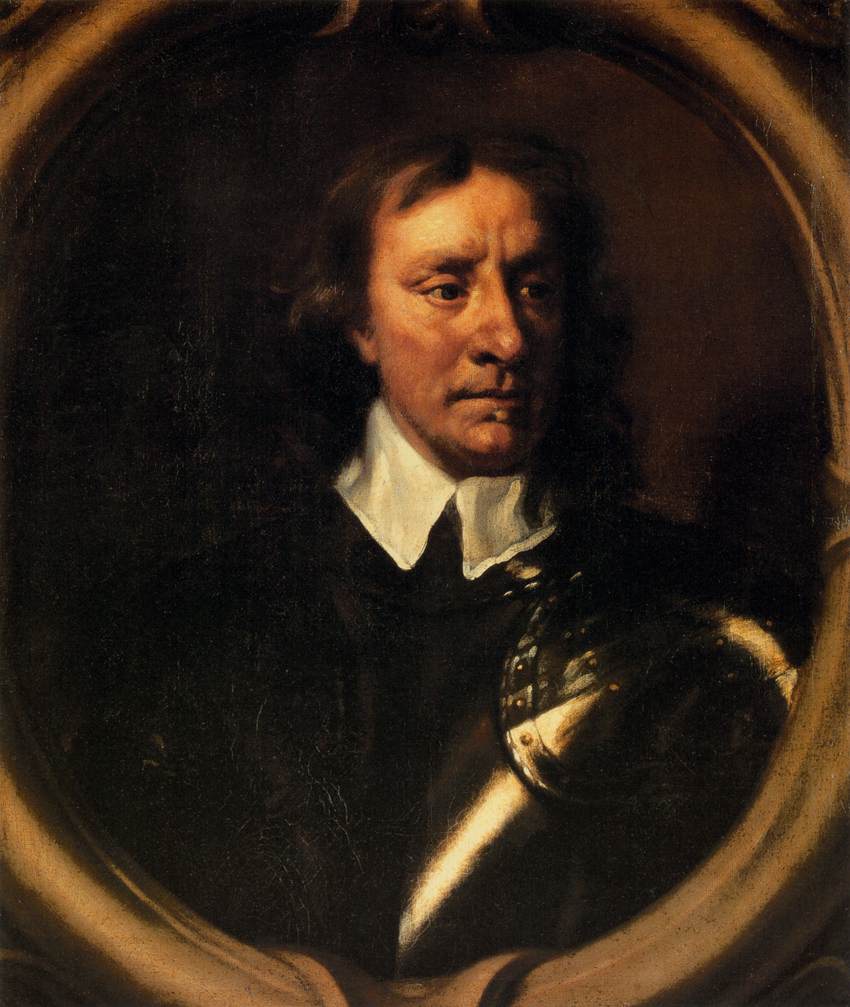|
October 30
Events Pre-1600 * 637 – Arab–Byzantine wars: Antioch surrenders to the Rashidun Caliphate after the Battle of the Iron Bridge. * 758 – Guangzhou is sacked by Arab and Persian pirates. * 1137 – Ranulf of Apulia defeats Roger II of Sicily at the Battle of Rignano, securing his position as duke until his death two years later. * 1270 – The Eighth Crusade ends by an agreement between Charles I of Anjou (replacing his deceased brother King Louis IX of France) and the Hafsid dynasty of Tunis, Tunisia. * 1340 – ''Reconquista'': Portuguese and Castilian forces halt a Muslim invasion at the Battle of Río Salado. 1601–1900 *1657 – Anglo-Spanish War: Spanish forces fail to retake Jamaica at the Battle of Ocho Rios. *1806 – War of the Fourth Coalition: Convinced that he is facing a much larger force, Prussian General von Romberg, commanding 5,300 men, surrenders the city of Stettin to 800 French soldiers. * 1817 – Simón Bol ... [...More Info...] [...Related Items...] OR: [Wikipedia] [Google] [Baidu] |
Arab–Byzantine Wars
The Arab–Byzantine wars or Muslim–Byzantine wars were a series of wars from the 7th to 11th centuries between multiple Arab dynasties and the Byzantine Empire. The Muslim Arab Caliphates conquered large parts of the Christian Byzantine empire and unsuccessfully attacked the Byzantine capital of Constantinople. The frontier between the warring states remained almost static for three centuries of frequent warfare, before the Byzantines were able to recapture some of the lost territory. The conflicts began during the early Muslim conquests under the expansionist Rashidun Caliphate, part of the initial spread of Islam. In the 630s, Rashidun forces from Arabia attacked and quickly overran Byzantium's southern provinces. Muslim conquest of the Levant, Syria was captured in 639 and Arab conquest of Egypt, Egypt was conquered in 642. The Exarchate of Africa was Muslim conquest of the Maghreb, gradually captured between 647 and 670. From the 650s onwards, Arab navies entered the Medit ... [...More Info...] [...Related Items...] OR: [Wikipedia] [Google] [Baidu] |
Portugal
Portugal, officially the Portuguese Republic, is a country on the Iberian Peninsula in Southwestern Europe. Featuring Cabo da Roca, the westernmost point in continental Europe, Portugal borders Spain to its north and east, with which it shares Portugal-Spain border, the longest uninterrupted border in the European Union; to the south and the west is the North Atlantic Ocean; and to the west and southwest lie the Macaronesia, Macaronesian archipelagos of the Azores and Madeira, which are the two Autonomous Regions of Portugal, autonomous regions of Portugal. Lisbon is the Capital city, capital and List of largest cities in Portugal, largest city, followed by Porto, which is the only other Metropolitan areas in Portugal, metropolitan area. The western Iberian Peninsula has been continuously inhabited since Prehistoric Iberia, prehistoric times, with the earliest signs of Human settlement, settlement dating to 5500 BC. Celts, Celtic and List of the Pre-Roman peoples of the Iberia ... [...More Info...] [...Related Items...] OR: [Wikipedia] [Google] [Baidu] |
Third Republic Of Venezuela
The Third Republic of Venezuela () was the reestablished Republic of Venezuela declared by Simón Bolívar in the year 1817, during the Venezuelan War of Independence. The beginning of the Third Republic of Venezuela is attributed to the period after the , during which the Republicans restored democratic institutions in Ciudad Bolívar, Angostura. The Republic ended, after the Congress of Angostura of 1819 decreed the union of Venezuela with United Provinces of New Granada, New Granada, to form the Republic of Gran Colombia. Venezuela would become once again an independent Republic after its separation from Gran Colombia in 1830, with José Antonio Páez as President. Administrative divisions # Mérida Province (Venezuela), Mérida Province # Trujillo Province (Venezuela), Trujillo Province # Caracas Province # Barinas Province # Barcelona Province (Venezuela), Barcelona Province # Cumaná Province # Margarita Province # Guayana Province See also *Captaincy General of Vene ... [...More Info...] [...Related Items...] OR: [Wikipedia] [Google] [Baidu] |
Simón Bolívar
Simón José Antonio de la Santísima Trinidad Bolívar y Palacios (24July 178317December 1830) was a Venezuelan statesman and military officer who led what are currently the countries of Colombia, Venezuela, Ecuador, Peru, Panama, and Bolivia to independence from the Spanish Empire. He is known colloquially as ''El Libertador'', or the ''Liberator of America''. Simón Bolívar was born in Caracas in the Captaincy General of Venezuela into a wealthy family of American-born Spaniards (Criollo people, criollo) but lost both parents as a child. Bolívar was educated abroad and lived in Spain, as was common for men of upper-class families in his day. While living in Madrid from 1800 to 1802, he was introduced to Enlightenment philosophy and married María Teresa Rodríguez del Toro y Alaysa, who died in Venezuela from yellow fever in 1803. From 1803 to 1805, Bolívar embarked on a Grand Tour that ended in Rome, where he swore to end the Spanish America, Spanish rule in the Amer ... [...More Info...] [...Related Items...] OR: [Wikipedia] [Google] [Baidu] |
1817
Events January–March * January 1 – Sailing through the Sandwich Islands, Otto von Kotzebue discovers New Year Island. * January 19 – An army of 5,423 soldiers, led by General José de San Martín, starts crossing the Andes from Argentina, to liberate Chile and then Peru. * January 20 – Ram Mohan Roy and David Hare found Hindu College, Calcutta, offering instructions in English on Western subjects, including other European languages. * February 12 – Battle of Chacabuco: Argentine and Chilean soldiers of the United Provinces of the Río de la Plata defeat the Spanish royalist troops in what is now Chile, marking the turning point in the war against European rule of South America. * March 3 ** On his last day in office, U.S. President James Madison vetoes John C. Calhoun's Bonus Bill as unconstitutional after it has passed both houses of the U.S. Congress. ** The U.S. Congress passes a law to split the Mississippi Territory, afte ... [...More Info...] [...Related Items...] OR: [Wikipedia] [Google] [Baidu] |
Capitulation Of Stettin
In the Capitulation of Stettin on 29–30 October 1806, Lieutenant General Friedrich Gisbert Wilhelm von Romberg surrendered the garrison and fortress to a much smaller French light cavalry brigade led by General of Brigade Antoine Lasalle. This event was one of a number of surrenders by demoralized Prussian soldiers to equal or inferior French forces after their disastrous defeat at the Battle of Jena-Auerstedt on 14 October. Stettin, now Szczecin, Poland, is a port city on the Oder River near the Baltic Sea, about northeast of Berlin. After Jena-Auerstedt, the broken Prussian armies crossed the Elbe River and fled to the northeast in an attempt to reach the east bank of the Oder. Following a two-week chase, Marshal Joachim Murat intercepted over 10,000 Prussians at the Battle of Prenzlau and bluffed them into surrendering on 28 October. The following day, Lasalle's and another French light cavalry brigade induced 4,200 more Prussians to lay down their weapons in the ... [...More Info...] [...Related Items...] OR: [Wikipedia] [Google] [Baidu] |
Friedrich Gisbert Wilhelm Von Romberg
Friedrich Gisbert Wilhelm Freiherr von Romberg (17 July 1729, Schloss Brünninghausen, Dortmund – 21 May 1809, Berlin) was a German officer who rose to lieutenant general (Generalleutnant) in the Prussian Army. As governor of Stettin in 1806, he surrendered without a fight, for which he was sentenced to life imprisonment by a Prussian military tribunal. Life From a Westphalian noble family, Romberg was born in his family castle in 1729. He started his career in the Prussian army by becoming a Gefreitenkorporal in Infanterieregiment Graf Wied (No. 41) in 1746. He was badly wounded at the Battle of Kolín in 1757. In 1773 he was put in command of a grenadier battalion and the following year he was made a member of the Pour le Mérite Order. In 1780 he was put in command of Infanterieregiment von Wolffersdorff (No. 9) under Karl Friedrich von Wolffersdorff – in the same year he was made an oberst. In 1787 he became a major general and the following year he was put in command ... [...More Info...] [...Related Items...] OR: [Wikipedia] [Google] [Baidu] |
War Of The Fourth Coalition
The War of the Fourth Coalition () was a war spanning 1806–1807 that saw a multinational coalition fight against Napoleon's First French Empire, French Empire, subsequently being defeated. The main coalition partners were Kingdom of Prussia, Prussia and Russian Empire, Russia with Electorate of Saxony, Saxony, Franco-Swedish War, Sweden, and United Kingdom of Great Britain and Ireland, Great Britain also contributing. Excluding Prussia, some members of the coalition had previously been fighting France as part of the War of the Third Coalition, Third Coalition, and there was no intervening period of general peace. On 9 October 1806, Prussia declared war on France and joined a renewed coalition, fearing the rise in French power after the defeat of Austrian Empire, Austria and establishment of the French-sponsored Confederation of the Rhine in addition to having learned of French plans to cede Prussian-desired Electorate of Hanover, Hanover to Britain in exchange for peace. Prussi ... [...More Info...] [...Related Items...] OR: [Wikipedia] [Google] [Baidu] |
1806
Events January–March *January 1 ** The French Republican Calendar is abolished. ** The Kingdom of Bavaria is established by Napoleon. *January 5 – The body of British naval leader Horatio Nelson, 1st Viscount Nelson, lies in state in the Painted Hall of Greenwich Hospital, London, prior to his funeral. *January 8 – Battle of Blaauwberg: British infantry force troops of the Batavian Republic in the Dutch Cape Colony to withdraw. *January 9 ** The Dutch commandant of Cape Town surrenders to British forces. On January 10, formal capitulation is signed under the Treaty Tree in Papendorp (modern-day Woodstock). ** Lord Nelson is given a state funeral and interment at St Paul's Cathedral in London, attended by the Prince of Wales. *January 18 – The Dutch Cape Colony capitulates to British forces, the origin of its status as a colony within the British Empire. *January 23 ** Following the death of William Pitt the Younger, his cousin Lord Grenville succeeds hi ... [...More Info...] [...Related Items...] OR: [Wikipedia] [Google] [Baidu] |
Battle Of Ocho Rios
The Battle of Ocho Rios also known as Battle of Las Chorreras was a military action which took place on the island of Jamaica on 30 October 1657 where a Spanish force under Cristóbal Arnaldo Isasi hoping to take back the island was defeated by the English occupying force under the Governor Edward D'Oyley. The English had occupied Jamaica in 1655 but had been reduced significantly by disease in the aftermath. They ran through governors at a rapid rate: General Robert Sedgwick arrived and died in 1655, General William Brayne replaced him and died in 1656, and then General Edward D'Oyley who had already been on the island took over as Governor being acclimatised to the island's harsh tropical conditions. Two years after the English invasion, Cristóbal Arnaldo Isasi, the former Spanish governor, had been hiding in the hills with the runaway slaves (later known as maroons). He requested a force to be sent from Cuba to retake the island for Spain. He now had reinforcements fr ... [...More Info...] [...Related Items...] OR: [Wikipedia] [Google] [Baidu] |
Jamaica
Jamaica is an island country in the Caribbean Sea and the West Indies. At , it is the third-largest island—after Cuba and Hispaniola—of the Greater Antilles and the Caribbean. Jamaica lies about south of Cuba, west of Hispaniola (the island containing Haiti and the Dominican Republic), and southeast of the Cayman Islands (a British Overseas Territories, British Overseas Territory). With million people, Jamaica is the third most populous English-speaking world, Anglophone country in the Americas and the fourth most populous country in the Caribbean. Kingston, Jamaica, Kingston is the country's capital and largest city. The indigenous Taíno peoples of the island gradually came under Spanish Empire, Spanish rule after the arrival of Christopher Columbus in 1494. Many of the indigenous people either were killed or died of diseases, after which the Spanish brought large numbers of Africans to Jamaica as slaves. The island remained a possession of Spain, under the name Colo ... [...More Info...] [...Related Items...] OR: [Wikipedia] [Google] [Baidu] |
Anglo-Spanish War (1654–1660)
The Anglo-Spanish War was a conflict between the Commonwealth of England, English The Protectorate, Protectorate and Spain between 1654 and 1660. It was driven by the economic and religious rivalry between the two countries, with each side attacking the other's commercial and colonial interests in various ways, such as privateering and naval expeditions. In 1655, an English amphibious warfare, amphibious expedition invaded Spanish territory in the Caribbean, eventually capturing the island of Jamaica. In 1657, England formed an alliance with France, merging the Anglo-Spanish war with the larger Franco-Spanish War (1635–1659), Franco-Spanish War, with major land actions that took place in the Spanish Netherlands. Although the war was terminated after Stuart Restoration, The Restoration of King Charles II of England in 1660, tensions in the Caribbean with regards to the English possession of British Jamaica, Jamaica kept the conflict going intermittently for over ten years. ... [...More Info...] [...Related Items...] OR: [Wikipedia] [Google] [Baidu] |





